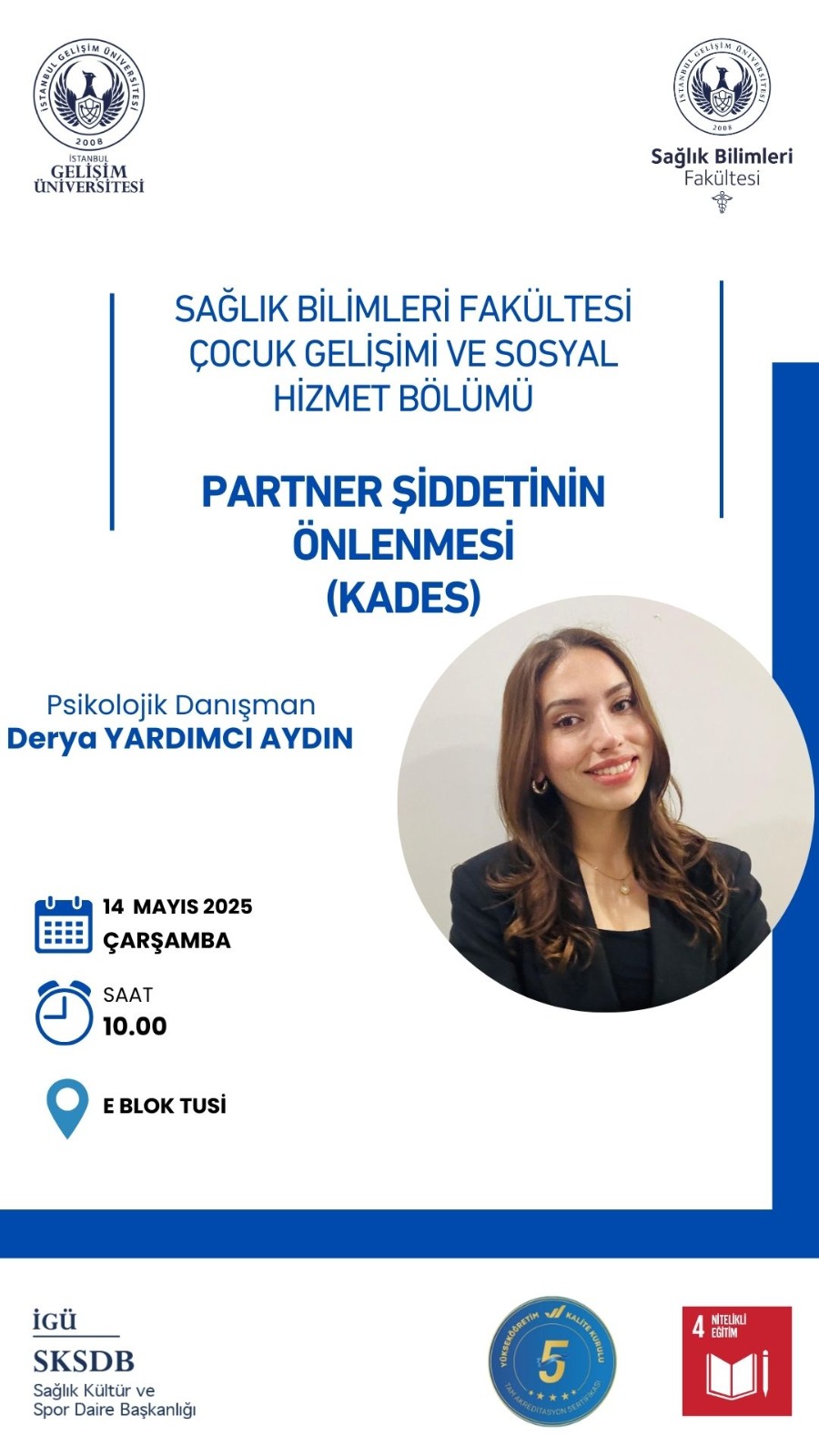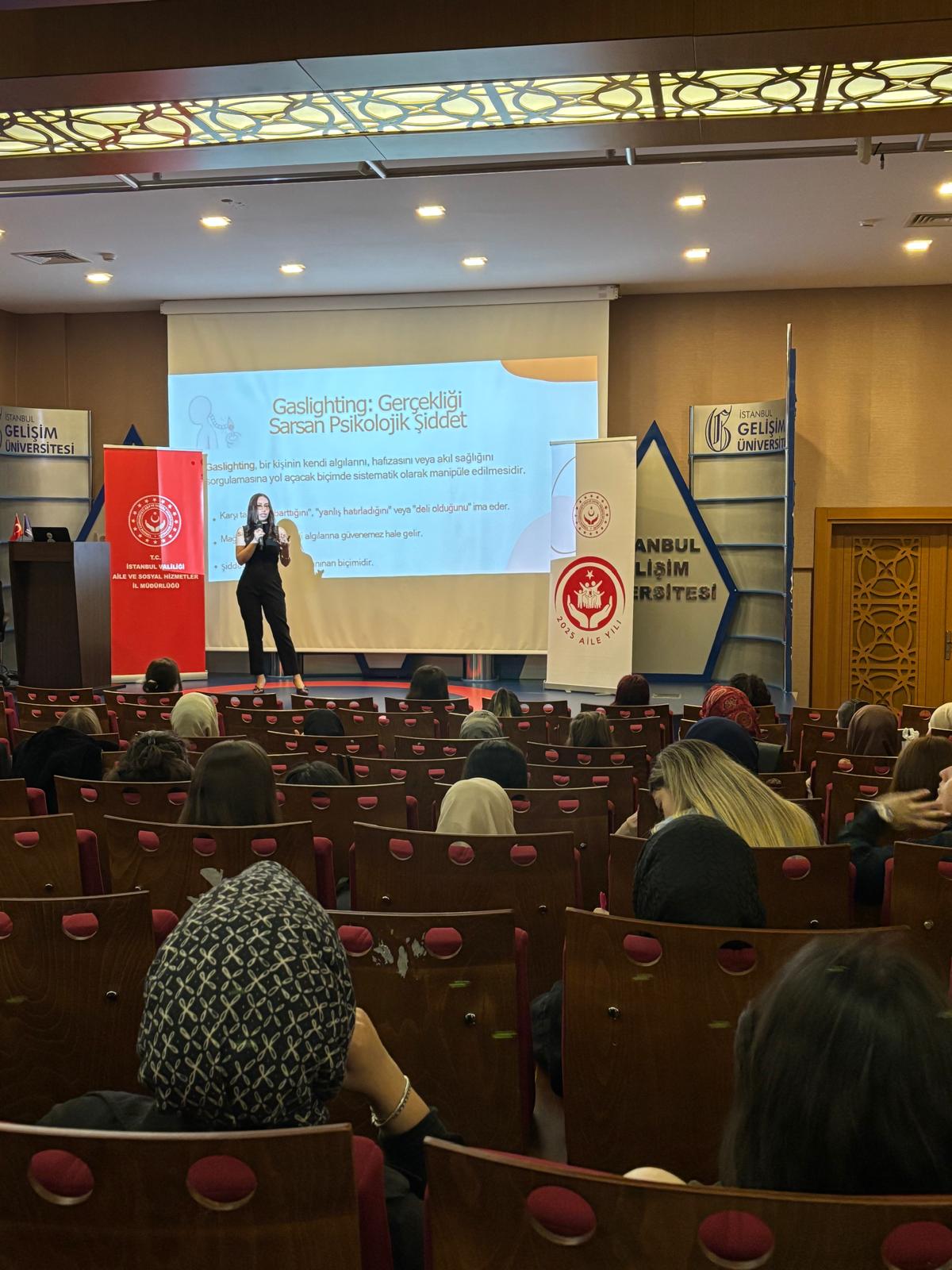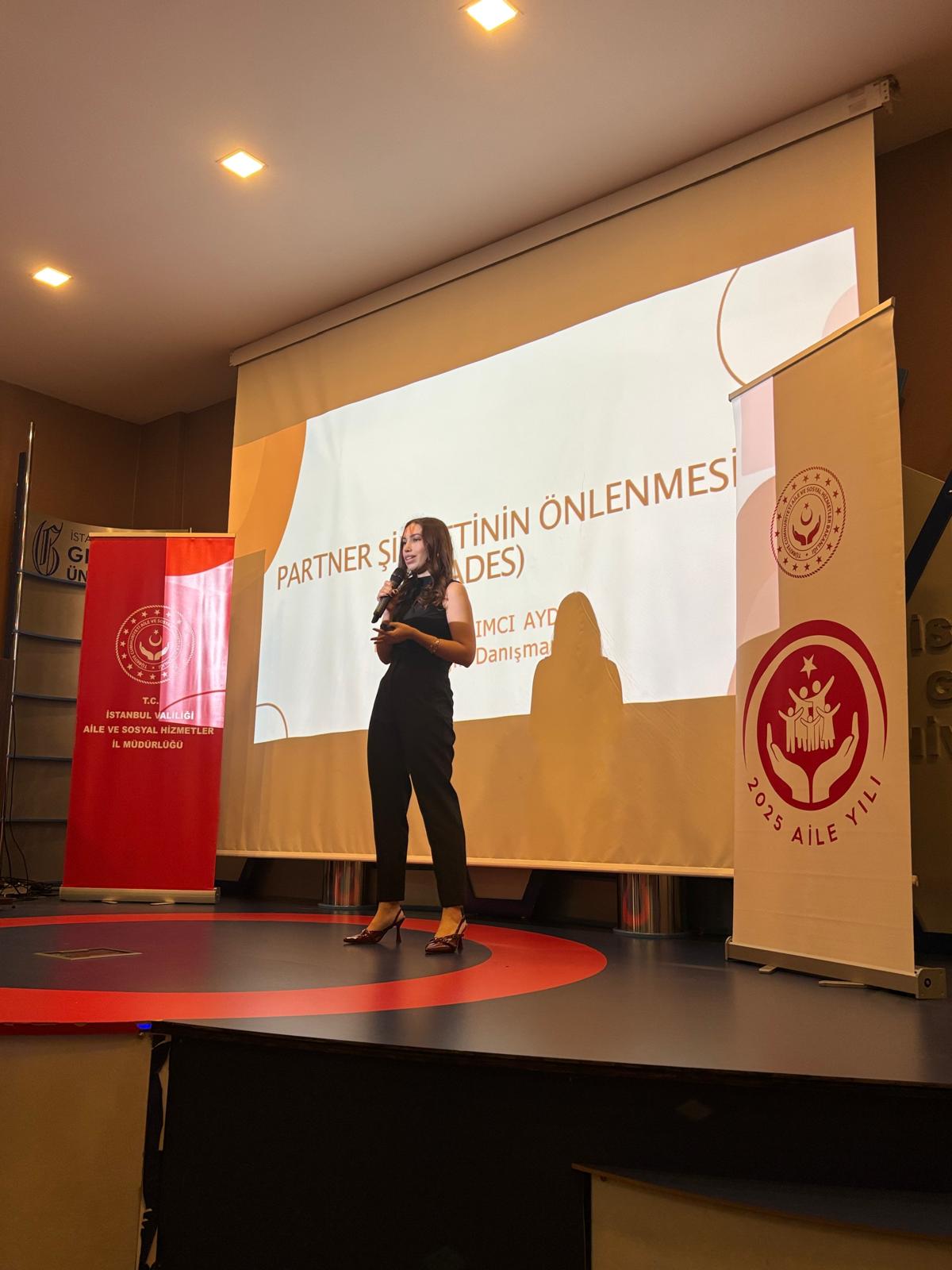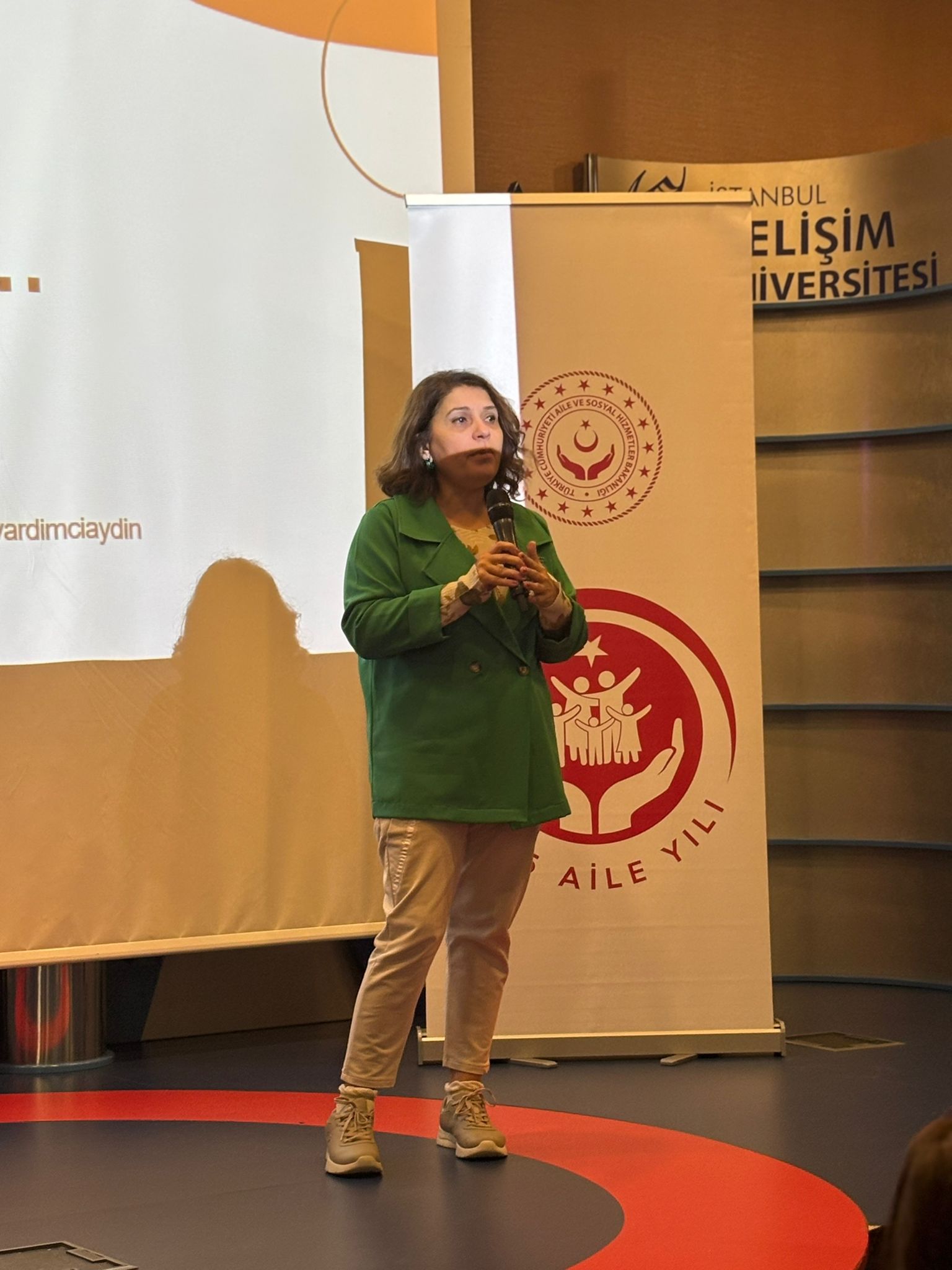The seminar was conducted by Psychological Counselor Derya Yardımcı Aydın. The session began by outlining its main purpose: to provide information on the definition, forms, effects, and solutions regarding intimate partner violence; to promote awareness about recognizing abuse; and to raise consciousness about not remaining silent and the use of the KADES application.
“Intimate Partner Violence (IPV)” is defined as physical, sexual, or psychological harm—or the threat of such harm—inflicted by a current or former partner. Today, the term “partner” is not limited to marital relationships; it encompasses romantic relationships, engagements, and cohabiting individuals. The seminar emphasized that violence is not solely physical but multidimensional in nature. A comprehensive explanation of the various types of violence was provided: Physical violence includes acts such as hitting, pushing, slapping, burning, or using sharp objects to inflict bodily harm. Psychological (emotional) violence targets mental well-being and includes constant criticism, belittlement, threats, blame, and humiliation. Though it leaves no visible wounds, it can cause deep psychological trauma. Sexual violence involves non-consensual sexual acts and includes harassment, forced marriage, or coercion related to sexual activity. Economic violence entails restricting access to financial resources, such as controlling income, prohibiting employment, or creating economic dependency. Social violence isolates individuals by limiting their social interactions, such as preventing contact with friends, ostracizing, or defamation. It was emphasized that all forms of violence have severe consequences, and societal awareness and education are key to prevention. The seminar continued with a discussion on gaslighting, described as a form of systematic psychological manipulation aimed at making a person question their memory, perception, or sanity. This is often part of emotional or psychological abuse. Key characteristics of gaslighting include: Distortion of reality: The perpetrator denies or twists facts (e.g., “That never happened, you’re imagining things”). Undermining perception: Comments like “You’re overreacting” or “You always misunderstand things” are used to erode trust in one’s own judgment. Inducing guilt: The abuser shifts blame to the victim (e.g., “I only did that because of you”). Isolation: Reducing the victim’s contact with their support system to increase dependency. Victims of gaslighting may lose self-confidence, constantly question themselves, and may require psychological support. It can occur in romantic, familial, or professional relationships. Though often difficult to detect, identifying it is crucial for establishing boundaries and seeking help. The session also covered the KADES (Women’s Support Application). Developed by the Turkish Ministry of Interior, KADES is a mobile safety application designed to help women and children reach law enforcement quickly in cases of violence, harassment, or threats. Functionality of KADES: Download: Available for free on Android and iOS platforms. Login: Users verify their identity through Turkey’s e-Government system (e-Devlet). Emergency Alert: In emergencies, pressing the in-app "Emergency Button" sends an alert with GPS location to the 112 Emergency Call Center. Immediate Response: Law enforcement units are promptly dispatched to the reported location. Importance of KADES: It reassures women that they are not alone. It ensures a rapid response in potentially dangerous situations. It demonstrates how technology can be effectively used in preventing violence. While KADES is a vital tool for women’s safety, long-term solutions require increased societal awareness and education regarding gender-based violence.
At the conclusion of the event, Assist. Prof. Nurten Elkin, Head of the Department of Child Development, highlighted the significance of intimate partner violence as a public health issue. She provided insightful information aimed at raising awareness and emphasized the necessity of preventive measures to combat such violence. Following her remarks, Assist. Prof. Elkin presented a plaque of appreciation to Psychological Counselor Derya Yardımcı Aydın, officially marking the end of the seminar.









